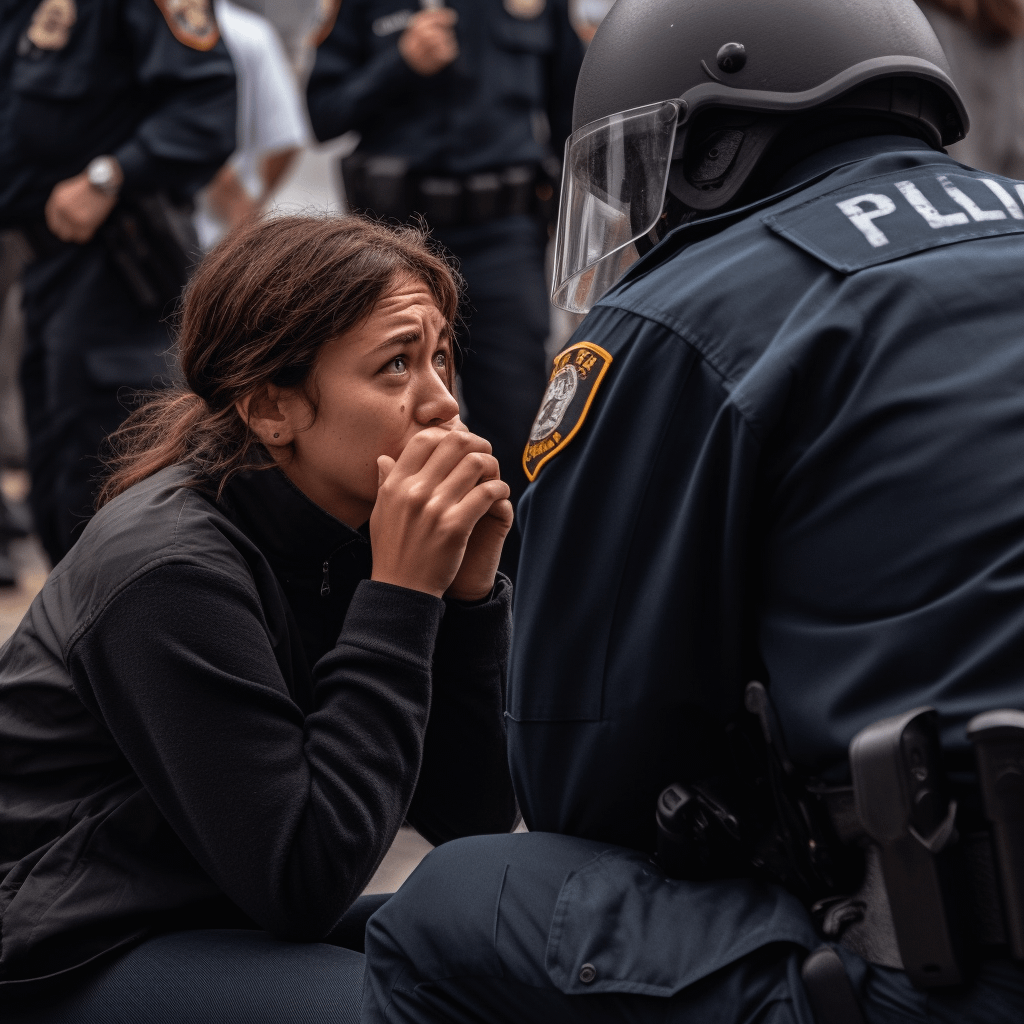Please leave your contact information and we will contact you as soon as possible.
Human Trafficking Lawsuits
Human trafficking is far more common across the globe and throughout the United States than many assume. This global phenomenon, often hidden from the public eye, has devastating consequences for its victims and their loved ones. Human trafficking is a much larger issue across the globe, including in the United States, than some may assume. A form of modern-day slavery, human trafficking as an industry makes hundreds of billions of dollars each year and counts on the silence of hotels, motels, and commercial airlines to keep business going. Filing a human trafficking lawsuit against companies that allowed or turned a blind eye to sex trafficking on their property can help survivors obtain justice and financial compensation for the crimes committed against them.
Edwards Henderson is dedicated to obtaining justice on behalf of survivors of sex crimes and human trafficking. Our human trafficking lawyers are highly experienced in representing victims of sex trafficking and even represented women in the sex trafficking lawsuits against Jeffrey Epstein. If you or a loved one ar a survivor of sex trafficking, contact us today for a free legal consultation.
Key Takeaways
- Human trafficking is a crime that exists in all countries and can affect people of all races, genders, ages, and nationalities.
- Types of human trafficking include sex trafficking, labor trafficking, people smuggling, organ trafficking, and trafficking for forced criminal activities.
- Federal law allows survivors of human trafficking to file lawsuits against traffickers and any third party that may have enabled human trafficking.
Human Trafficking Lawsuits: Know Your Rights
Unfortunately, underground criminals are not the only perpetrators in the human trafficking crisis. Many well-known corporations and businesses — including commercial airlines, hotels and motels, truckstops, restaurants, and nightclubs — turn a blind eye to human trafficking or sometimes even profit off of it. When corporations enable human traffickers, they could be held responsible for the damage inflicted on the survivors of human trafficking.
In 2003, the Trafficking Victims Protection Reauthorization Act (TVPRA) was enacted to give survivors of human trafficking the right to sue labor traffickers. The TVPRA’s list of human trafficking survivors who can file lawsuits in federal court was expanded in 2008 to include survivors of sex trafficking. This law allows survivors to pursue legal action against whoever knowingly benefits, either financially or otherwise, from the human trafficking crimes that were committed against them.
Filing a human trafficking lawsuit can give survivors a form of closure and the financial resources necessary to access the support they need to heal. A human trafficking lawyer can help hold the perpetrators and any enablers accountable for the trauma and damages that ensued as a result of human trafficking. Additionally, holding offenders accountable can serve to prevent human trafficking crimes in the future.
What is Human Trafficking?
According to the U.S. Department of Homeland Security, human trafficking is defined as the use of force or coercion to obtain some form of labor or commercial sex act. While sex trafficking crimes tend to get the most media attention, human trafficking includes any type of forced labor or people smuggling.
What Are the Different Types of Human Trafficking?
Sexual exploitation
Sex trafficking occurs in every area of the world. Women and children both from developing and developed countries can be kidnapped or lured into sex trafficking with promise of a better life and a good-paying job. These individuals are often transported using fake documents to the destination country where they are then sexually exploited upon arrival. Sexual exploitation of women and children can range from prostitution to live sex shows, strip clubs or exotic dancing, mail-order brides, pornography (including child pornography), military prostitution, and sexual tourism.
Forced labor
Labor trafficking victims often come from developing countries where they are recruited using force or under false pretenses. Individuals may be forced to work in manufacturing, agriculture, construction, domestic servitude, and other jobs involving intensive labor and poor working conditions.
Forced criminal activities
The trafficking of victims for criminal activities allows traffickers and other criminals to profit from various crimes. Victims may be forced to engage in a variety of illegal activities, including drug production and transport, theft, terrorism, and more.
Removal of organs
Criminals in some countries with long waitlists for organ donors may exploit patients in need of organ transfer as well as potential donors. Operations on organ trafficking victims are often done in dangerous conditions with no follow-up care, putting their lives at risk.
People smuggling
Human traffickers may prey on migrants moving between countries. This may involve forcing migrants to work in unsafe or inhumane conditions to pay to illegally cross the border.

What Industries Can Be Involved in Human Trafficking?
Many different types of businesses in all industries can be involved in human trafficking. Companies may use laborers who have been trafficked to fulfill staffing needs for free or may look the other way when their property or business is used to facilitate human trafficking.
Examples of types of businesses that could be held liable for human trafficking include:
- Adult entertainment
- Agriculture
- Caregiving
- Child care
- Construction
- Drug smuggling and distribution
- Fairs and carnivals
- Hospitality
- Janitorial services
- Massage parlors
- Prostitution
- Salon services
- Traveling sales
Who is Most Vulnerable to Human Trafficking?
Human trafficking is an appalling human rights violation that affects people of all backgrounds. While anyone can be a victim of human trafficking, certain groups are particularly vulnerable. According to the United States Department of Justice (DOJ), anyone can become a victim of human trafficking, regardless of age, gender, race, national origin, or socioeconomic status. However, traffickers often prey on people who are vulnerable, poor, in an unstable living situation, or in search of a better life.
The DOJ lists the following populations as being the most vulnerable to human trafficking in the U.S.:
- American Indian and Alaskan Native communities
- The LGBTQ community
- Undocumented migrants
- Individuals with disabilities
- Runaway or homeless youth
- Temporary-guest workers
- Low-income individuals
It is essential that we take steps to protect those who are most vulnerable to human trafficking, such as by strengthening laws that protect survivors, raising public awareness, providing more education to vulnerable communities, and ensuring human trafficking survivors have access to helpful resources.

How Do Human Traffickers Transport Their Victims
Traffickers transport their victims in plain sight using planes, trains, cars, rideshare services, buses, and ships. Traffickers may also use fake documents such as fake passports and visas to move them across international borders. In some cases, traffickers will use the “loverboy” method which involves developing a romantic relationship with a person. Once the relationship has been established, they can then exploit the trust built during the relationship to manipulate and hurt their victim.
The methods used to transport victims may also depend on the location they are taken to. For example, if they are taken to an urban area, traffickers might use buses or trains to move them. If they are taken to a rural area, traffickers may utilize cars or planes. Whichever the method of transportation, traffickers often take extreme measures to keep their victims silent and prevent them from escaping. This can include physical confinement, threats of violence, and the use of drugs or alcohol to induce compliance. In some cases, traffickers may even use illegal methods of transporting their victims. This includes smuggling them through underground tunnels or over land and sea in makeshift vessels. Traffickers may also falsify documents to help them cross borders more easily.
In addition, traffickers often take advantage of the anonymity of the trucking industry, using long-haul drivers to illegally transport people across states and countries. In some cases, truck stops have been sued for enabling human traffickers to move victims through their location. For instance, in 2018, a sex trafficking survivor sued Love’s Truck Stops and Pilot Travel Centers, amongst others, for profiting from human trafficking.
One of the most alarming aspects of this form of human trafficking is how easily traffickers can conceal their victims in plain sight. Victims may be on public transportation, with few people ever knowing what is happening. To combat this type of trafficking, it is important for law enforcement and citizens alike to be aware of signs that may indicate human trafficking is occurring. These signs include individuals appearing to be under the control of someone else and who appear to be disoriented or frightened. In some cases, they may not speak the same language as the driver or those around them. If you observe any of these signs, please contact your local police department immediately.
Whatever methods traffickers use to transport their victims, it is important to remember that these individuals are not willing participants. They are victims of exploitation and abuse and deserve our full attention and support.
What is the Connection Between Commercial Businesses and Human Trafficking
Commercial businesses have played a role in the perpetuation of human trafficking, whether knowingly or unknowingly. In some cases, traffickers use business relationships as a way to gain access to potential victims. They will pay for goods and services with no intention of paying them back, or they may hire trafficked persons as laborers. In other cases, traffickers may use a legitimate business to help move their victims from place to place or to launder money.
Businesses have a responsibility to be aware of the signs of trafficking and avoid participating in related activities. Traffickers often rely on unsuspecting business owners or employees to facilitate the movement of their victims. This is why companies need to have policies in place to help prevent trafficking from happening on their properties, otherwise, they may be held liable for negligence for failing to take precautions to prevent human trafficking.
According to the Polaris Project, 75 percent of human trafficking survivors report coming into contact with hotels or motels during the time they were being trafficked. Recently, several large hotel and motel companies have been under scrutiny for allegations that they ignored tell-tale signs of human trafficking. The Trafficking Victims Protection Act allows human trafficking survivors to file civil lawsuits against individuals well as third-party businesses that were complicit in or turned a blind eye to human trafficking. Through a human trafficking civil lawsuit, survivors can seek compensation for their losses and hold businesses accountable for their role in perpetuating trafficking activities.
There have been successful verdicts against businesses that have enabled human trafficking in the recent past. In February 2023, a Philadelphia hotel owner was ordered to pay $24 million to eight sex trafficking victims who were sexually and physically abused for weeks in a Days Inn hotel room. The survivors claimed that ownership knew what was taking place and that a security guard and employee were complicit in the trafficking and took efforts to hide the crimes from police.
In 2020, a motel company agreed to pay an undisclosed amount to a human trafficking survivor that claimed the Shangri-La Motel financially benefitted from trafficking. In a separate instance in 2022, a judge ordered the owner of an Arkansas motel to pay $25.4 million to settle allegations of child sex trafficking.
Social media platforms and other websites have also come under fire for being used by traffickers for recruiting purposes. According to the Associated Press, a classified sex ads website named Backpage, paid an undisclosed amount in 2017 to settle claims for knowingly marketing commercial sex.
An experienced human trafficking lawyer can help survivors seek compensation for the harm they have suffered, as well as hold these companies accountable for their involvement in the exploitation of trafficked persons. Successful litigation can also serve as a warning to other companies that may be complicit in trafficking that trafficking will not be tolerated.
What Are The Signs of Human Trafficking?
It can be difficult to recognize the signs of human trafficking. Survivors may not self-identify as being trafficked and may feel ashamed or powerless to ask for help. Thus, the warning signs of human trafficking may differ based on the type of trafficking. According to the State Department, red flags that may indicate an individual is a victim of human trafficking include:
- Living with their employer or at their place of employment
- Signs of physical abuse
- Poor living conditions
- Cannot or will not speak for themself
- Submissive or fearful
- Looks malnourished
- Has poor physical or dental health
- Lack of possession or identification
It is important to be aware of these signs so that you can spot potential trafficking victims and get them the help they need. If you suspect that someone is a victim of human trafficking, contact the National Human Trafficking Hotline at 1-888-373-7888 or text “BeFree” (233733).

Where is Human Trafficking Most Common?
Human trafficking is a global tragedy that affects people from all walks of life. It can happen anywhere, but there are certain areas where it is particularly common.
In the United States, human trafficking is most prevalent in California, Texas, and Florida. Other states, such as New York, Illinois, Georgia, and Nevada, are also known to have high levels of human trafficking activity. Internationally, some of the most affected countries include Thailand, India, Mexico, the Philippines, and Nigeria. Human trafficking is often associated with industries like massage parlors, nail salons, agriculture, construction, hospitality, and childcare.
One major factor attributing to the prevalence of human trafficking in certain countries is poverty. Human traffickers take advantage of those living in poverty by offering them false promises of a better life, or in some cases, resort to threats and violence to coerce them into submission. They may also take advantage of people who are fleeing war-torn countries or those who are seeking asylum.
Human trafficking can be found in many of the world’s most affluent countries as well. This is due to the high demand for trafficked persons, who are often forced into labor or sex work. Traffickers can easily move people around, making it difficult to detect and prosecute their crimes.
In recent years, increased awareness of the issue has led to more stringent laws against human trafficking in many countries. However, much work still needs to be done to fully eradicate this crime. If you suspect someone may be a victim of human trafficking, do not hesitate to reach out for help.
What Laws Are in Place Against Human Trafficking?
In the United States, the Trafficking Victims Protection Act (TVPA) of 2000 was the first comprehensive federal law on human trafficking. The TVPA established a framework to fight against human trafficking through protection, prevention, and prosecution measures. The 2003 Trafficking Victims Protection Reauthorization Act gave survivors of human trafficking the right to sue labor traffickers. In 2008, this was expanded to give sex trafficking survivors the right to file a lawsuit against any party that “knowingly benefits” from human trafficking or who willfully ignored obvious signs of human trafficking.
At the state level, many states have passed laws related to human trafficking. These laws are often focused on providing resources for victims, increasing criminal penalties for traffickers, and expanding victims’ rights. Some states have also created task forces that work to identify potential human trafficking cases and assist trafficking survivors.
The federal government has an active role in mitigating human trafficking. The Department of Justice has prosecuted numerous high-profile human trafficking cases and has made it a priority to target traffickers and those who profit from their crimes. The Department of Homeland Security has also worked with other agencies to create programs that focus on identifying and assisting victims of human trafficking.
While there is still much work to be done, these and similar other initiatives have already made a difference in the lives of countless human trafficking survivors.
Who Can Be Sued in a Human Trafficking Lawsuit?
To combat the widespread heinous crime of human trafficking, many states have adopted laws to help prevent human trafficking and hold perpetrators accountable for their actions. Human trafficking survivors have the right to sue their traffickers as well as any third parties that may have assisted or enabled their exploitation.
Third parties that may be sued for human trafficking include hotels, casinos, nightclubs, farms and agricultural companies, airlines, transportation companies, and restaurants. Each of these can be held liable for knowingly or recklessly providing goods or services to traffickers that enabled the victimization of another person. For example, if a hotel knowingly allows traffickers to use its facilities to operate their trafficking business, it may be held liable for damages resulting from the victim’s suffering. Similarly, a restaurant or nightclub could be sued for negligence if it negligently allowed traffickers to access its premises without taking steps to ensure the safety of all patrons.
Human trafficking laws vary from state to state, but there are a number of parties that can be held responsible for their role in trafficking. Depending on the case, any of the following may be faced with a human trafficking lawsuit:
- Those who recruit, transport, provide or receive persons for exploitation, including employers and recruiters
- Those who enable or facilitate trafficking by providing goods or services to victims
- Those who financially benefit from the labor or services of victims
- Those who knowingly employ or maintain victims of trafficking
- Those who exploit victims, such as landlords or property owners
- Those who benefit from the exploitation of others, such as business owners
Although bringing a human trafficking lawsuit can be a difficult process, it is important to understand your rights and seek legal assistance if you are a human trafficking survivor. A human trafficking attorney can help you pursue justice and compensation for the harm you suffered.

Human Trafficking Advocacy Groups
As human trafficking continues to be a major global issue, there are organizations that provide education, awareness, and advocacy for trafficking survivors. Human trafficking advocacy groups are comprised of individuals from various backgrounds who are dedicated to the fight against modern-day slavery. These groups typically work with law enforcement, policymakers, and other stakeholders to ensure that trafficking survivors are provided with the support they need.
One of the most active organizations is The National Center on Sexual Exploitation (NCOSE). This advocacy group works to raise public awareness of the dangers of sexual exploitation and related issues, including human trafficking. NCOSE strives to provide support to the survivors of sexual exploitation and reduce demand for commercial sex by enacting policy change and empowering stakeholders.
World Without Exploitation (WWE) is also a prominent organization working to end human trafficking. This coalition seeks to eliminate all forms of exploitation, including human trafficking, in the United States and abroad. WWE works with government officials and grassroots activists to create an environment where exploitation is less likely to occur.
Lastly, another organization fighting human trafficking is the Polaris Project. Polaris operates the National Sex Trafficking Hotline, advocates for more stringent federal and state laws against trafficking, and provides services and resources to survivors of human trafficking.
In addition to national organizations, there are many local and state-based advocacy groups working to end human trafficking. These groups often work with local law enforcement and service providers to provide aid for trafficking survivors in their area. Some also host educational events and provide resources for community members to learn more about human trafficking and ways to recognize signs of exploitation.
Through these advocacy efforts, many organizations are working to bring an end to human trafficking and provide resources and support for victims of this vile crime. It is important to remember that human trafficking survivors need our support. It is only through continued awareness, education, and advocacy that we will be able to create a lasting change in our society.
How Can Filing a Lawsuit Help Human Trafficking Survivors?
Filing a human trafficking lawsuit can allow survivors to recover compensation for the damages they sustained as well as provide closure and the resources necessary to rebuild their life after the trauma of human trafficking. In addition, holding businesses and corporations responsible for enabling human trafficking can help deter it from happening in the future.
If you are considering filing a lawsuit, a human trafficking attorney can advocate on your behalf and fight for maximum compensation for the trauma you have endured. The human trafficking lawyers of Edwards Henderson have recovered hundreds of millions of dollars on behalf of survivors, including a $71 million verdict on behalf of a rape survivor.
How Do I Report Human Trafficking?
To report a crime or an emergency, call 911. To report a suspected human trafficking crime, call the National Human Trafficking Hotline at 1-888-373-7888 and/or US Immigrations and Customs Enforcement at 1-866-347-2423, or submit a tip online.
Human Trafficking Lawsuits: FAQs
1. Can human trafficking survivors come forward anonymously in a civil lawsuit?
Laws regarding anonymity in human trafficking cases differ by state. A human trafficking attorney can seek a court order to protect the identity of survivors in states that do not grant these protections by default.
2. What is the statute of limitations for a human trafficking case?
There is no federal statute of limitations for human trafficking cases. State statutes of limitations for human trafficking vary from state to state.
3. Does a sex trafficker need to be criminally convicted to sue?
No. Human traffickers, including sex traffickers, do not need to be criminally convicted in order to be sued for damages.
4. How can a human trafficking lawyer help me?
A human trafficking lawyer can guide you through the legal process as well as act as your advocate. Hiring a human trafficking attorney can also help survivors obtain the maximum potential compensation for their losses.
5. How does a civil lawsuit differ from a criminal case?
The criminal court exists to punish criminals but not to compensate the victim. A civil lawsuit can provide survivors of human trafficking with financial compensation for what they went through by holding perpetrators and relevant third parties financially liable for their role in human trafficking.
6. How many states have human trafficking laws?
All fifty states in the United States have enacted laws that criminalize human trafficking. These laws vary by state, with some states having more comprehensive anti-trafficking legislation than others. The majority of states have statutes that address labor and sex trafficking. Some states offer protective orders for victims and restitution damages, which are calculated based on how much the defendant may have profited from the act. Additionally, many states have created task forces and/or commissions to coordinate efforts and provide support to survivors of trafficking.
Generally, all states have laws prohibiting trafficking for labor, services, or commercial sex, in addition to offering protective measures for the victims. For instance, many states have laws that protect survivors from being charged with crimes related to their trafficking, such as prostitution. While this is a step in the right direction, more needs to be done to ensure survivors of trafficking are protected, and traffickers are held accountable for their actions.
7. What is law enforcement doing to stop human trafficking?
Amendments to the TVPRA have placed greater responsibility on law enforcement to investigate and prosecute human trafficking cases. Additionally, the U.S. State Department laid out plans for a three-year comprehensive approach to combatting human trafficking that involves a coordinated effort between federal, state, and local law enforcement agencies.
Fight Back and Talk to a Human Trafficking Lawyer Today
One of the most empowering ways one may fight against human trafficking is by seeking justice through civil litigation. A knowledgeable and experienced human trafficking lawyer can help survivors access justice and compensation for their losses. One of the foremost experts in human trafficking cases is Edwards Henderson, a crime victims’ law firm that has worked extensively to bring justice to trafficking survivors. Brad Edwards, the founding partner of Edwards Henderson, is most notably known for his work representing sex abuse survivors in civil lawsuits against Jeffrey Epstein, the deceased financier and convicted sex offender. Edwards played a key role in establishing the Epstein Victims’ Compensation Fund, which helped sex trafficking survivors receive compensation for the harm they suffered.
At Edwards Henderson, we are dedicated to helping our clients seek justice and financial compensation for their pain and suffering. Our team of experienced attorneys has extensive experience handling human trafficking cases, and we understand the laws and processes involved in these cases. We are here to make sure that justice is served, and that perpetrators of these horrific crimes are held accountable. Find out how we can help you during a free legal consultation.

Article Sources
-
U.S. Department of Homeland Security. What Is Human Trafficking?
https://www.dhs.gov/blue-campaign/what-human-trafficking -
U.S. Department of Justice: What Is Human Trafficking?
https://www.justice.gov/humantrafficking/what-is-human-trafficking -
Sex trafficking victim suing truck stops, hotel for profiting from her suffering
https://abc13.com/lawsuit-sex-trafficking-backpagecom/2982366/ -
Northeast Philadelphia hotel owner ordered to pay $24 million to sex trafficking victims
https://www.phillyvoice.com/northeast-philadelphia-hotel-owner-24-million-sex-trafficking-lawsuit/ -
Human Trafficking Survivor Settles Lawsuit Against Motel Where She Was Held Captive
https://www.npr.org/2020/02/20/807506786/human-trafficking-survivor-settles-lawsuit-against-motel-where-she-was-held-capt -
$25.4M verdict entered against owners of a Springdale motel for ties to sex trafficking
https://katv.com/news/local/254-m-verdict-entered-against-owners-of-a-springdale-motel-for-ties-to-sex-trafficking-benton-county-judge-om-hospitality-inc-economy-inn-attorney-meredith-moore-rainwater-holt-sexton-sexual-abuse-rape-royal-david-donovan-victim-survivor-arkansas-state -
U.S State Department. Identify and Assist a Trafficking Victim.
https://www.state.gov/identify-and-assist-a-trafficking-victim/ -
U.S. Department of Justice: Key Legislation (Human Trafficking)
https://www.justice.gov/humantrafficking/key-legislation -
National Center on Sexual Exploitation
https://endsexualexploitation.org -
World Without Exploitation
https://www.worldwithoutexploitation.org -
Polaris Project
https://polarisproject.org -
ICE Tip Form
https://www.ice.gov/webform/ice-tip-form -
U.S State Department. Federal Response on Human Trafficking.
https://www.state.gov/humantrafficking/



